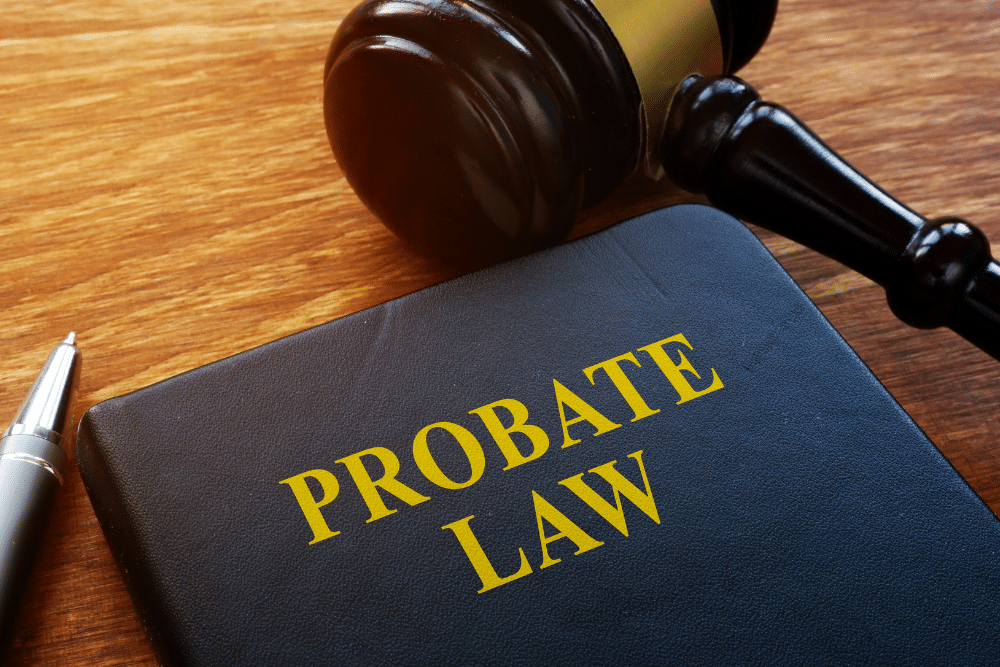[Read Transcript]
Hi. Thanks for tuning in to another dose of bite-sized bits of knowledge, where we give you meaningful information in a short amount of time. Today we’re going to talk about just one very narrow topic that we get all the time. I feel compelled to share with you. It’s the illusion that a will avoids probate.
Bottom line here is that: A will is a document that has no effect at all until you pass away. And it still doesn’t have any effect until then, thereafter, your “personal representative” – or your executor in other states – opens up an estate, and a court enters an order admitting the will to probate. At that time, your will has significance.
You know you’ve got to have the original will. You can always probate a lost or destroyed will, but that aside, you need the original will.
You’ve got to file with the court. You have to notify the beneficiaries in the probate. Notify all the interested parties who are called “heirs at law,” meaning that they would be the natural heirs if you didn’t disinherit them. They have to be notified so that they can have an opportunity to say, “That will is not valid. It was procured by fraud/duress/you didn’t have capacity/whatever.” Those are the common usual suspects.
But, after all that settles, the judge will enter an order admitting the will to probate. At that time, your will has value. It has significance. Nobody knows whether it’s going to ever have that significance until that time.
You’re going to go through the rest of your life thinking, “I have a will. I feel good. I feel calm. I feel at peace. My wishes are memorialized in a document… that I have no idea is going to have effect.” And I think it’s a false sense of security. So, a will does not avoid probate. It gets admitted to probate. And it is communicating your wishes, which will be carried out in probate.
So don’t make that mistake. If you want to avoid probate, and you want to guarantee – I shouldn’t say “guarantee” – you want to maximize the likelihood that your wishes will be carried out with the minimum of what we call the Three C’s – court, costs, and conflict – the only way to do that is to plan ahead and probably use a trust, not a will at all – well, a will to supplement the trust. You do also do a pour-over will.
But that’s the way to do it. Otherwise, you’re rolling the dice.
I hope you found this helpful. Hope it clarifies a few things. Thank you for stopping by and stay tuned for more.
If you’re reading this, you probably have a vested interest to protect your family, assets, and business. You likely want to leave a proud legacy after you’re gone. And you want their after-death to-do list to be as short and simple as possible.
Many people think that a last will and testament will prompt their assets to circumvent the probate process. Unfortunately, this is one of the top misconceptions about estate planning.
Haimo Law has a short video playlist on the subject of probate.

How Not to Avoid Probate — Example 1
Let’s review a real life example.
You own a business, and that business is in your name. This signifies one of two situations:
- That you are the sole member of your business, OR
- You are the sole shareholder owning all of the membership interest or shares of a corporation
Your last will and testament says that your business is going to pass to your brother and your sister equally — 50/50.
Guess what? In order for that split to be accomplished, your will must first be admitted to the probate court, and your business must go through the probate process.
Before your beneficiaries receive any business interests or other inheritance – estate administration costs, fees, and attorney compensation will have to be paid from probate estate assets first. Potentially, some creditors may have to be paid from probate estate assets as well.
Your business may not pass as smoothly to your brother and sister as you intended by naming them in your last will and testament.
The probate process takes a lot of time to get through, and the rules have several nuances. Additionally, probate costs a lot of money. A primary reason for creating an estate plan is to avoid probate and keep costs down for loved ones. That entails leaving more than just a last will and testament.

How Not to Avoid Probate — Example 2
Let’s review another example to make this clear.
You list your son as the beneficiary on an investment account to receive the funds directly upon your death. If you pass away before him, you will have successfully avoided probate for that asset, and the proceeds would go to your son. But in this example, your son unfortunately passes away before you do. You never get around to updating your beneficiary designation on that investment account.
Now, a probate must be opened for that investment account. It must become an estate asset through the probate process before it can pass on to the beneficiaries.
The same aforementioned administration costs, fees, attorney compensation, and creditors will apply in this example, as well — and in any other probate situation. This will be the case even if you have a last will and testament designating an alternate beneficiary. A good plan takes into account the unexpected.
There are ways to avoid probate, however unique or complicated your situation may be. But there is no cookie-cutter estate plan. There is no fill-in-the-blank estate plan. And having to go through the process can lead to some truly unfortunate results.
Case Study: How Probate Can Harm Your Loved Ones… and Avoiding It Can Potentially Help Them
Here is one final example to demonstrate the problem with probate and the potential benefits of avoiding it.
Alan passed away in early 2019, divorced and survived by three minor children. The minor children were the only beneficiaries.
Alan did not have an estate plan in place prior to passing away. His assets included a house with approximately $50,000 in equity, personal property with a value of about $20,000, two vehicles, and a checking account containing $10,000.
Since Alan did not have a proper trust, his assets had to go through the probate process in order to pass to his children. The probate administration of Alan’s estate lasted longer than 15 months – which is fairly normal, unfortunately.
At the end of the probate process, the final accounting reflected that after personal representative fees, house maintenance fees, depreciation of assets, realtor fees, regular attorney fees, extraordinary attorney fees, and probate administration costs, there was no money left in the estate to distribute to the children.
Alan’s children waited in anticipation for 15 months… only to discover there would be no inheritance from their father.

What Could Have Happened If Probate Had Been Avoided
If a proper trust had been prepared and funded, the fees and costs associated with the estate administration would have been avoided. The successor trustee would have had immediate access to trust assets – thereby reducing some of the house maintenance costs during the lengthy probate matter and possibly avoiding the depreciation in value of assets.
In short, there is a better chance the children would have some inheritance from their father if probate had been avoided via setting up a trust.
Specific Reasons to Set Up Your Estate Plan So You Can Skip Probate
Here are the top reasons to avoid probate:
- Cost:
- Probate court costs and fees
- Regular attorney fees
- Sometimes extraordinary attorney fees
- Other estate administration costs
- Time:
- On average, the probate process takes 12-18 months before assets are distributed to the beneficiaries
- Probate is very time consuming for the personal representative
- Court-supervised:
- Court approval is needed for each step in the process
- Court hearings and documents become public record
How to Avoid Probate
Remember, a last will and testament does NOT avoid probate.
As it relates to property, a Last Will and Testament merely serves as your written expression of your preference for how you’d like property that is owned solely in your name to be devised upon your death.
Avoiding probate is accomplished in a couple of main ways:
- Own property that passes outside of probate, OR
- Retitle property so it’s owned by another person or entity
Here are a few specific strategies to avoid probate:
- Life insurance – if structured properly – passes outside of probate
- Transfer or retitle assets so they are jointly held (owned by more than one person as joint tenants or tenants by the entirety)
- Transfer or retitle assets so they are owned by a business entity, such as a corporation, limited liability company, or limited partnership
- Transfer or retitle assets so they are owned by a trust, such as a revocable or irrevocable trust
Please note that the above strategies are simplified and must be done correctly to be effective.
When you set up an estate plan designed to allow your assets to skip past probate, you avoid all of these frustrations and expenses for the loved ones you leave behind. Working with an attorney is the best way to make sure this is accomplished correctly.
Reach out to learn how Haimo Law can work with you to do just that. We’ll help you achieve your estate planning goals and ensure you feel accomplished and confident. If you truly want to avoid probate, with all the time and cost involved, call us to get started today.
